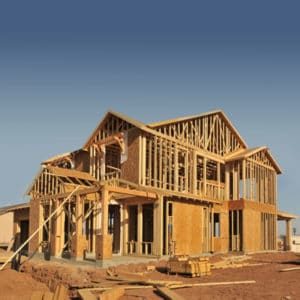
For most people, a home is the biggest investment they will ever make, and for many, it is also the place where their retirement years will be spent. When a home turns out to have a defect it can substantially impact the value of the investment as well as leave the owner stuck with costly repairs and renovations. Construction defects can also present safety hazards to the people residing there.
Types of Construction Defects
When a contractor fails to follow building regulations, or uses substandard materials or a defective design, the resulting structure may be seriously flawed. Some common construction defects include:
- Structural failure
- Water damage
- Cracks in the foundation, walls, or roof
- Dry rot or mold
- Insufficient insulation
- Inadequate drainage
Substantial Completion
When bringing a complaint of defective construction against a builder, the statute of limitations applies, and the clock starts running on the date of substantial completion. While the legal definition of substantial completion varies by state, it can generally be defined as the date that a construction project is sufficiently complete so that the owner may use it for the intended purpose.
Proof of substantial completion may include: documentation of final inspections or approvals given by public regulatory agencies; required warranties and other documentation having been turned over to the owner; or the date the owner was able to fully occupy and use the structure. Many construction contracts include their own definition of substantial completion and some companies provide an actual “notice of completion” document to their clients.
Statute of Limitations and Statute of Repose
The statute of limitations begins once a homeowner discovers or should have reasonably discovered a defect. However, many states also have an outer time limit known as the statue of repose. The statue of repose begins from the time a project is completed.
Under Pennsylvania law, the statute of limitations for a defective construction lawsuit is four years for a contract dispute, and two years for a tort claim. The statute of repose is limited to 12 years after completion. If a claim is brought because of injuries that happen between the 10th and 12th year, then the statute of repose may be extended to 14 years in such cases.
In New Jersey, the law states that the statute of limitations is six years for contracts and property damage cases and two years for personal injury cases. The statute of repose runs for ten years “after performance or furnishing of services and construction.”
Neither state has a “right to cure” statute in which homeowners must first notify the builder and allow them time to repair the defect once it has been discovered.
Philadelphia Defective Construction Lawyers at Harty Law Group Help Those Harmed by Construction Defects Obtain Compensation
If you invested in a home that is defective in construction or design you may be able to take legal action against the builder or architect. At Harty Law Group, our experienced Philadelphia defective construction lawyers will devise the best legal strategy for your unique situation and fight to recover the compensation you deserve. Call 267-383-3899 to schedule a consultation or contact us online today. From our offices in Philadelphia and Haddonfield, New Jersey, we proudly represent clients throughout Pennsylvania and New Jersey.

